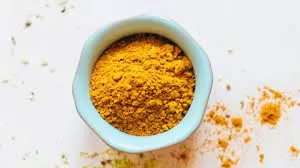- 0086-571-85302990
- sales@greenskybio.com
Unveiling the Benefits and Applications of Turmeric Soap
2025-08-20

Turmeric soap has garnered attention for its potential in evening out skin tone, hydrating dry skin, and supporting the repair of damaged skin. Known for its active ingredient, Curcumin, turmeric boasts anti-inflammatory and antioxidant properties, making it a popular choice for skincare.
Potential Skin Benefits
Reduces Inflammation: Traditionally used for its anti-inflammatory properties, Curcumin may help alleviate conditions such as psoriasis by reducing swelling when applied topically, as in soap.
Antioxidant Protection: Rich in antioxidants, turmeric can help prevent cell damage by neutralizing harmful free radicals, potentially diminishing the risk of conditions like hyperpigmentation and skin cancer.
Combats Skin Infections: Turmeric’s antimicrobial properties may prevent bacterial skin infections, with studies suggesting it can improve antibacterial activity and prevent acne-causing bacteria.
Enhances Skin Glow: Oral consumption of turmeric has shown promise in increasing skin hydration and elasticity, potentially leading to a more vibrant complexion.
Aids in Skin Repair: Turmeric's anti-inflammatory action supports faster healing of skin wounds and reduces scarring, which is beneficial for individuals with conditions like psoriasis.
Hydrates and Soothes: Turmeric soap may improve symptoms of dry, itchy skin conditions such as eczema, providing relief and enhanced skin comfort.
Evens Skin Tone: Studies suggest turmeric may brighten and balance skin tone by addressing photodamage and discoloration, making turmeric soap a compelling option for achieving a more even complexion.
Fights Acne and Dark Spots: Turmeric soap may help manage acne and the resulting hyperpigmentation, thanks to Curcumin’s ability to inhibit acne bacteria and fade dark marks.
Reduces Signs of Aging: Turmeric's antioxidant power could help slow the aging process caused by UV damage, improving skin's appearance and firmness.
Using Turmeric Soap
For those with ongoing skin conditions, consulting a healthcare provider or dermatologist is recommended before integrating turmeric soap into their routine. Here are some usage tips:
- Apply turmeric soap as often as tolerated on different parts of the skin.
- Ensure store-bought products are noncomedogenic to avoid clogged pores.
- Conduct a patch test on a small skin area for a week to check for reactions such as discoloration or irritation.
DIY and Safety Considerations
Recipes for making turmeric soap at home are available online, requiring basic ingredients and supplies. However, caution is advised as homemade preparations might not offer the same benefits as commercial products.
While generally safe, turmeric can cause skin reactions in some individuals. A patch test is advisable to avoid adverse effects like rashes. Consult a healthcare provider if you notice any skin changes following the use of turmeric products.
Pregnant or breastfeeding individuals should seek medical advice before using turmeric products, as sufficient safety evidence is lacking for these groups. Turmeric, with its multifaceted benefits, remains a promising addition to skincare routines, offering natural solutions for various skin concerns.
- ▶ Hesperidin
- ▶ citrus bioflavonoids
- ▶ plant extract
- ▶ lycopene
- ▶ Diosmin
- ▶ Grape seed extract
- ▶ Sea buckthorn Juice Powder
- ▶ Beetroot powder
- ▶ Hops Extract
- ▶ Artichoke Extract
- ▶ Reishi mushroom extract
- ▶ Astaxanthin
- ▶ Green Tea Extract
- ▶ Curcumin Extract
- ▶ Horse Chestnut Extract
- ▶ Other Problems
- ▶ Boswellia Serrata Extract
- ▶ Resveratrol Extract
- ▶ Marigold Extract
- ▶ Grape Leaf Extract
- ▶ blog3
- ▶ Aminolevulinic acid
- ▶ Cranberry Extract
- ▶ Red Yeast Rice
- ▶ Red Wine Extract
-
Phellodendron Extract
2025-08-20
-
Tormentil Extract
2025-08-20
-
Propolis Extract Powder
2025-08-20
-
Selenium yeast
2025-08-20
-
Thunder God Vine Extract
2025-08-20
-
Aguaje Extract
2025-08-20
-
Stevia Extract
2025-08-20
-
Red Vine Extract
2025-08-20
-
American Ginseng Root Extract
2025-08-20
-
Baicalin
2025-08-20





















